| Listing 1 - 10 of 13 | << page >> |
Sort by
|
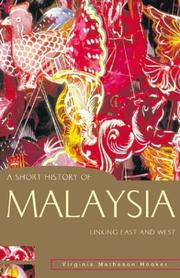
ISBN: 1741151465 1864489553 Year: 2003 Publisher: Sydney Allen & Unwin
Abstract | Keywords | Export | Availability | Bookmark
 Loading...
Loading...Choose an application
- Reference Manager
- EndNote
- RefWorks (Direct export to RefWorks)
Digital
ISBN: 9789814519397 9789814519380 Year: 2015 Publisher: Singapore ISEAS Publishing
Abstract | Keywords | Export | Availability | Bookmark
 Loading...
Loading...Choose an application
- Reference Manager
- EndNote
- RefWorks (Direct export to RefWorks)
Book
ISBN: 9789812305367 9789812302410 9789812302403 Year: 2004 Publisher: Singapore Institute of Southeast Asian Studies
Abstract | Keywords | Export | Availability | Bookmark
 Loading...
Loading...Choose an application
- Reference Manager
- EndNote
- RefWorks (Direct export to RefWorks)
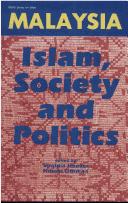
ISBN: 9789812305220 9789812301611 9789812301567 Year: 2003 Publisher: Singapore Institute of Southeast Asian Studies
Abstract | Keywords | Export | Availability | Bookmark
 Loading...
Loading...Choose an application
- Reference Manager
- EndNote
- RefWorks (Direct export to RefWorks)
Digital
ISBN: 9789812305367 Year: 2004 Publisher: Singapore Institute of Southeast Asian Studies
Abstract | Keywords | Export | Availability | Bookmark
Digital
ISBN: 9789812305220 Year: 2003 Publisher: Singapore Institute of Southeast Asian Studies
Abstract | Keywords | Export | Availability | Bookmark
 Loading...
Loading...Choose an application
- Reference Manager
- EndNote
- RefWorks (Direct export to RefWorks)
Book
ISBN: 1760464937 1760464929 Year: 2022 Publisher: Canberra : ANU Press,
Abstract | Keywords | Export | Availability | Bookmark
 Loading...
Loading...Choose an application
- Reference Manager
- EndNote
- RefWorks (Direct export to RefWorks)
Living Art: Indonesian Artists Engage Politics, Society and History is inspired by the conviction of so many of Indonesia's Independence-era artists that there is continuing interaction between art and everyday life. In the 1970s, Sanento Yuliman, Indonesia's foremost art historian of the late twentieth century, further developed that concept, stating: 'New Indonesian Art cannot wholly be understood without locating it in the context of the larger framework of Indonesian society and culture' and the 'whole force of history'. The essays in this book accept Yuliman's challenge to analyse the intellectual, sociopolitical and historical landscape that Indonesia's artists inhabited from the 1930s into the first decades of the new millennium, including their responses to the COVID-19 pandemic. The inclusion of one of Yuliman's most influential essays, translated into English for the first time, offers those outside Indonesia an insight into a formative period in the generation of new art knowledge in Indonesia. The volume also features essays by T. K. Sabapathy, Jim Supangkat, Alia Swastika, Wulan Dirgantoro and FX Harsono, as well as the three editors (Elly Kent, Virginia Hooker and Caroline Turner). The book's contributors present recent research on issues rarely addressed in English-language texts on Indonesian art, including the inspirations and achievements of women artists despite social and political barriers; Islam- inspired art; artistic ideologies; the intergenerational effects of trauma; and the impacts of geopolitical change and global art worlds that emerged in the 1990s. The Epilogue introduces speculations from contemporary practitioners on what the future might hold for artists in Indonesia. Extensively illustrated, Living Art contributes to the acknowledgement and analysis of the diversity of Indonesia's contemporary art and offers new insights into Indonesian art history, as well as the contemporary art histories of Southeast Asia and Asia more generally.
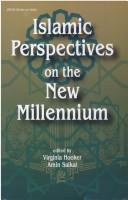
ISBN: 981230536X 9812302417 9812302409 Year: 2004 Publisher: Singapore : Institute of Southeast Asian Studies,
Abstract | Keywords | Export | Availability | Bookmark
 Loading...
Loading...Choose an application
- Reference Manager
- EndNote
- RefWorks (Direct export to RefWorks)
The early years of the twenty-first century have been characterized by a sense of widespread anxiety and fear because of the violent activities of groups of terrorists who claim they act in the name of Islam. Their acts of terrorism, viewed by a majority in the Muslim world as crimes which must be subject to the law, are in tragic contrast to the efforts of many Muslim intellectuals who have been working for the past several decades to find common ground between people of all faiths based on the universality of humankind. This book aims to bring to the attention of non-Muslims, in particular, the range of views which Muslims in the Middle East and in South and Southeast Asia hold on six topics of importance to life in the twenty-first century. The topics have been addressed from the internal Muslim point of view to provide readers with a sense of the main debates within Islam on each of the issues. The topics addressed are: the new world order; globalization and modernity; banking and finance; the nation-state; the position of women; and law and knowledge. The chapters have been written by Muslims and non-Muslims, each of whom is an expert on the area about which they write. The chapters are presented in pairs which offer Middle Eastern (and in one case South Asian) points of view which are matched by Southeast Asian perspectives on each of the six topics. While the media is quick to report on the more violent expressions of Islam, including terrorism, the vigorous debates, which now characterize the intellectual discourse in Muslim communities, are rarely if ever reported. This book not only describes and analyses those debates but also reflects the views of many Muslims across the world, emphasizing the connections and contrasts between the Middle East and Southeast Asia.
Islam and state --- Islam
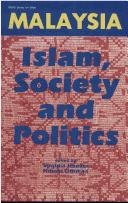
ISBN: 981230522X 9812301615 9812301569 Year: 2003 Publisher: Singapore : Institute of Southeast Asian Studies,
Abstract | Keywords | Export | Availability | Bookmark
 Loading...
Loading...Choose an application
- Reference Manager
- EndNote
- RefWorks (Direct export to RefWorks)
This collection of essays has been prepared as a tribute to Clive S. Kessler, Professor of Sociology at the University of New South Wales for over twenty years and a member of staff of the London School of Economics and Political Science, University of London, and the Barnard College, Columbia University, New York. Written by colleagues and graduate students, the essays are divided into three sections: Islam, Society and Politics. They focus on Professor Kessler's analyses of Malaysia. Each essay draws on aspects of his published research, taking his insights as points of departure for new studies. Professor Kessler's ideas and observations are thus extended, complemented and updated in ways which emphasize the depth and extent of his influence on contemporary research on Malaysia.
SOCIAL SCIENCE / Islamic Studies. --- Islam --- Islam and politics --- Islamic law --- Malays (Asian people) --- Religious life --- Social conditions. --- Malay race --- Melayu (Asian people) --- Orang Melayu (Asian people) --- Ethnology --- Civil law (Islamic law) --- Law, Arab --- Law, Islamic --- Law in the Qurʼan --- Sharia (Islamic law) --- Shariʻah (Islamic law) --- Law, Oriental --- Law, Semitic --- Politics and Islam --- Political science --- Political aspects
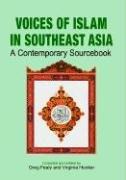
ISBN: 9789812303677 9812303677 9812303685 Year: 2006 Publisher: Singapore : Institute of Southeast Asian Studies,
Abstract | Keywords | Export | Availability | Bookmark
 Loading...
Loading...Choose an application
- Reference Manager
- EndNote
- RefWorks (Direct export to RefWorks)
Islam --- Islam and state --- Islam and politics --- Jihad. --- Islam et Etat --- Islam et politique --- Jihād --- Doctrines. --- Customs and practices. --- Doctrines --- Coutumes et pratiques
| Listing 1 - 10 of 13 | << page >> |
Sort by
|

 Search
Search Feedback
Feedback About UniCat
About UniCat  Help
Help News
News